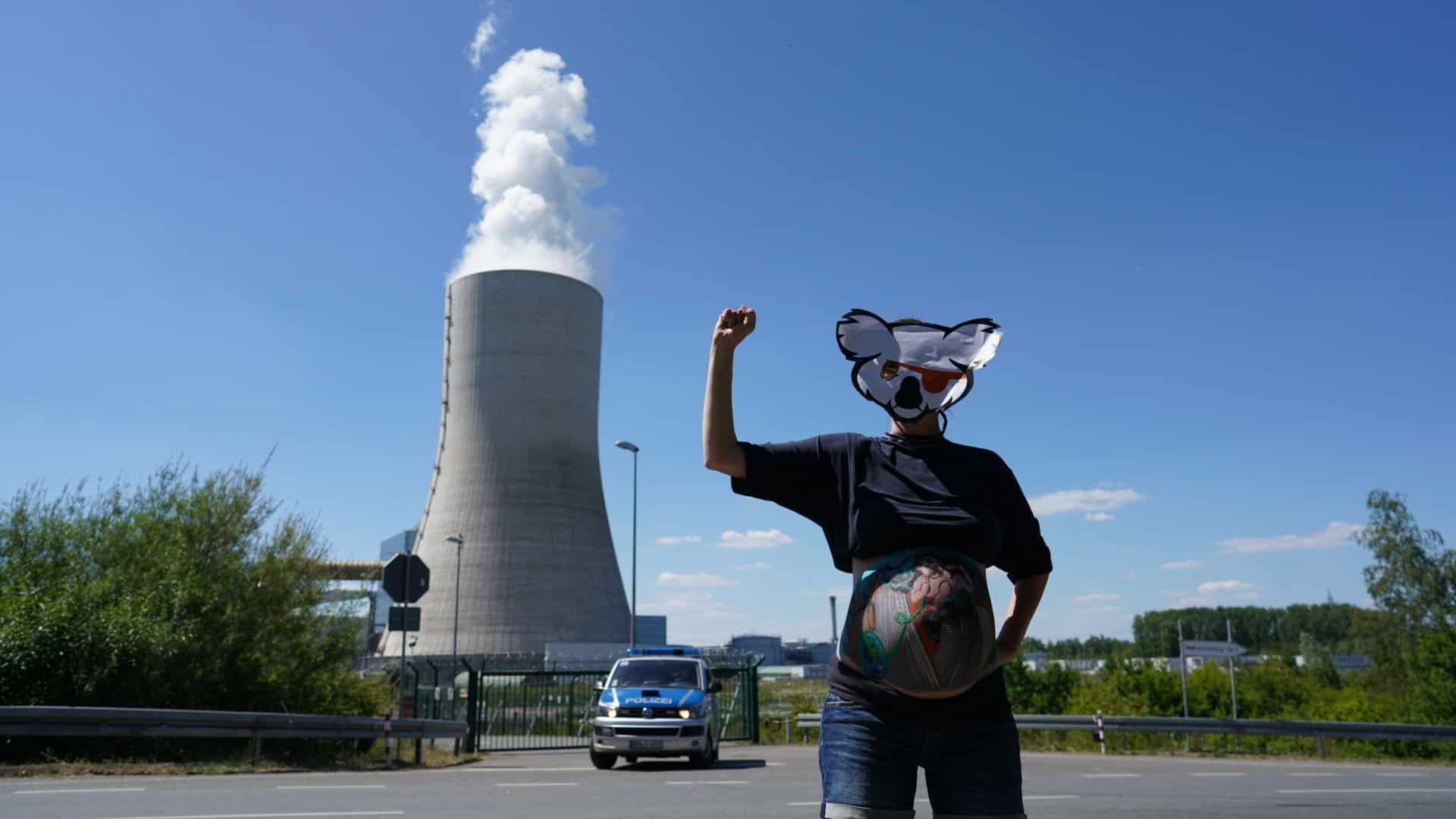The ECB, a climate killer ?!
In the middle of the climate crisis the European Central Bank (ECB) continues to support climate-damaging companies and thus further threatens the basis of our existence.
#ECBFossilFree – Our current campaign.
What exactly does the ECB do?
The “ECB” is known to many people in the EU and globally as the central bank of the European Union. Here is a brief explanation of the ECB and its main mechanisms.
The issue
The ECB’s Dirty Business
Through its monetary policies and ways of regulating commercial banks, the European Central Bank (ECB) can influence the climate crisis decisively – in both directions. As an example: The ECB’s Corona aid program PEPP alone pumped 1.35 trillion euros into the market. That is 1,350,000,000,000 euros, without any climate protection requirements!
The ECB justifies the absence of requirements with its self-image as a so-called “market-neutral” institution. In other words, it wants to make its purchases in such a way that the market is reflected as accurately as possible and is not distorted by investment that favour or discriminate against certain companies.
However, the ECB currently does not even maintain this antiquated “market neutrality”: According to study by ReclaimFinance 63% of corporate assets purchased by the ECB belong to carbon-intensive companies. The authors of the study speak of an “anti-climate bias” of the ECB, as it invests significantly more in climate-damaging industries than would be permitted for a “neutral” market portfolio.
One of the companies that the ECB supports in this way is Fortum. Fortum is the largest shareholder of Uniper Energy, a company which put the new coal-fired power station Datteln 4 into operation in 2020, despite the decision to phase out coal and against the recommendation of the German Coal Commission.
Two other notorious companies funded by the ECB are Shell and Total. Total intends to increase its climate-damaging oil and gas production by 12% by 2030 and Shell even wants to increase it by 38% in the same period!

Protest action against the coal-fired power station Datteln 4, which the ECB helped finance.
Climate Crisis and Price Stability
The ECB has announced that it is reviewing its current strategy. It says it wants to reflect on how the climate crisis influences its mandate of price stability (i.e., avoiding deflation and excessive inflation).
Somebody who is opposed to this is Jens Weidmann, President of the Deutsche Bundesbank and member of the Governing Council of the ECB. He believes that the fight against the climate crisis contradicts the ECB’s primary mandate of price stability and therefore shifts the responsibility to governments and parliaments. In other words: The climate crisis is none of the ECB’s business – let someone else take care of it.
Wake up, Mr. Weidmann! The increase in extreme weather events such as floods, droughts, fires, and storms will obviously have an impact on market prices and market stability, with devastating consequences! Natural disasters have a direct effect on the economy, insurance companies and banks.
Stable markets, banks and prices can only be guaranteed by protecting the climate – the ECB’s core mandate thus includes climate protection!
“Climate change is a source of structural change in the economy and financial system and therefore falls within the mandate of central banks and supervisors.” source
Climate protection is compulsory, not optional!
The ECB is the bank of all banks and thus the bank of all EU citizens. That is why the ECB should also be committed to the future of these citizens, instead of supporting climate-damaging companies at the expense of this future.
Furthermore, as an EU institution, the ECB is bound by the Paris Agreement as well as the European Charter of Fundamental Rights, which is explicitly committed to sustainable development. The central bank can (and must) take action based on this principle alone.
“A high level of environmental protection and the improvement of the quality of the environment must be integrated into the policies of the Union and ensured in accordance with the principle of sustainable development.” source
Be Transparent and Respect the Paris Agreement!
That means, the ECB must:
What does the Paris Agreement say?
To this end, various positive and negative criteria must be established.
- that by 2022 have not adopted a detailed plan to phase out oil and gas by 2030 in Europe and the OECD and by 2040 worldwide.
- that plan new projects to extract or process fossil fuels.
- that have high greenhouse gas emissions (e.g., aviation, automotive, cement and metals industries) and have not adopted a detailed plan by 2022 to reduce their emissions so that global heating does not exceed 1.5°C.
The demand for transparency means in particular that the ECB must publish the values of every asset purchased under existing and future programmes such as CSPP and PEPP. Furthermore, the ECB must regularly analyse and disclose the extent to which its operations and those of the European banking sector comply with the Paris Agreement.
We no longer have the time to shift the responsibility of fighting the climate crisis to others. We no longer have the time to pay lip service. We have to act NOW!
Sources and further information:
- ReclaimFinance: Quantitative easing and climate (pdf, englisch)
- Network for Greening the Financial System: Climate change as a source of financial risk (pdf, englisch)
- Greenpeace: Bankrolling the climate crisis (pdf, englisch)
- urgewald e.V. / Coal Exit List (englisch)
